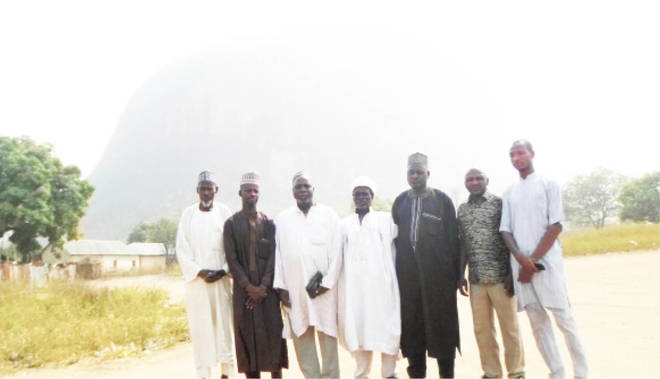
Zuma Rock is a national monument, depicted on the N1,000 note. However, the residents of Zuma Rock village say they have been neglected as they lack basic things like water, schools and hospitals among others.
It can be said that Zuma Rock Village is one of the most neglected areas in Nigeria despite being a major tourist site, formally under the Federal Capital Territory Administration (FCTA), but now under Suleja Local Government Area of Niger State. The village is on the edge of the capital city on the Abuja-Kaduna Expressway.
Even though the village is close to the centre of power, the inhabitants of the ancient settlement do not have anything associated with modernity like pipe borne water, secondary school, functioning borehole, police outpost, hand pump borehole and electricity.
The only things they have are a community primary school, a vigilante outpost and a one-room primary health centre.
The only organised businesses in the community are a pure water plant and a modern petrol station that have not connected their water or transformers to the community as their Corporate Social Responsibility (CSR).
The building of the Abuja-Kaduna Expressway has separated Zuma Rock with the host community, as the village is on the left, while the rock is by the right on the way from Abuja to Kaduna.
The village head of Zuma Rock, Malam Muhammadu Dallatu (Zuma Rock), said, “My forefathers lived, died and were buried here. We are under the district head of Gwazunu, while our councillor is under Madalla Ward. We are under the Suleja Emrate in Suleja Local Government Area.”
The village head said his people are friendly and accommodating and that they are host to people from all parts of Nigeria.
He said, “This is assisting us a lot as the new comers have new ideas that have helped the community which made us to provide land, establish two makeshift classrooms and provided empty cartoons for pupils to sit on. This effort led to the Suleja Local Government Council to come to our aid and build four classes and later added two to make it a complete primary school.”
Dallatu said, “We are Koro ethnic group or what the Hausa and others refer to as ‘Kwarawa’. We are peace-loving people and we want government to come to our aid as we have never had any confrontation with constituted authorities. We want a secondary school because some parents are so poor that they cannot afford the transport fare, or even buy and maintain bicycles for their children and wards to attend school daily in either Madalla or Zuba. In fact, the journey to and fro is risky for our children because of the expressway as many of our youths have lost their lives riding on or crossing it.”
According to him, there are about 2,000 houses with 10,000 people consisting of Koro, Hausa, Calabar, Igbo, Yoruba and many diverse ethnic groups, adding they have land for government, corporate organisations or NGOs to build the secondary school for them.
“During elections, we go to Madalla, Gwazunu and other places to exercise our civic responsibility because we don’t have a polling centre.”
He said during elections, politicians wooed them to vote for them but forgot or abandoned them after they had won.
“We only hear their sirens when they are passing by our village; that is the only modern thing around here.
“In short this village is like a transit camp where people who work in Suleja and Abuja come and sleep in the evening and go away in the morning.
From observation, water is a major source of concern to the inhabitants of Zuma Rock Village as the only solar borehole that was commissioned in 2012 is in a state of disrepair as it takes a whole day instead of some hours to fill the overhead tank.
The alternative source of water is a pond across the expressway. The pond is the same source of water for domestic use, irrigation and livestock. The water in the pond is not safe for human consumption as it is open and greenish due to contamination.
Also, women and children must cross the expressway to fetch water. Crossing the road proves fatal most times.
Concerning security, the community does not have a police outpost. However, through communal effort, there is a vigilante office.




